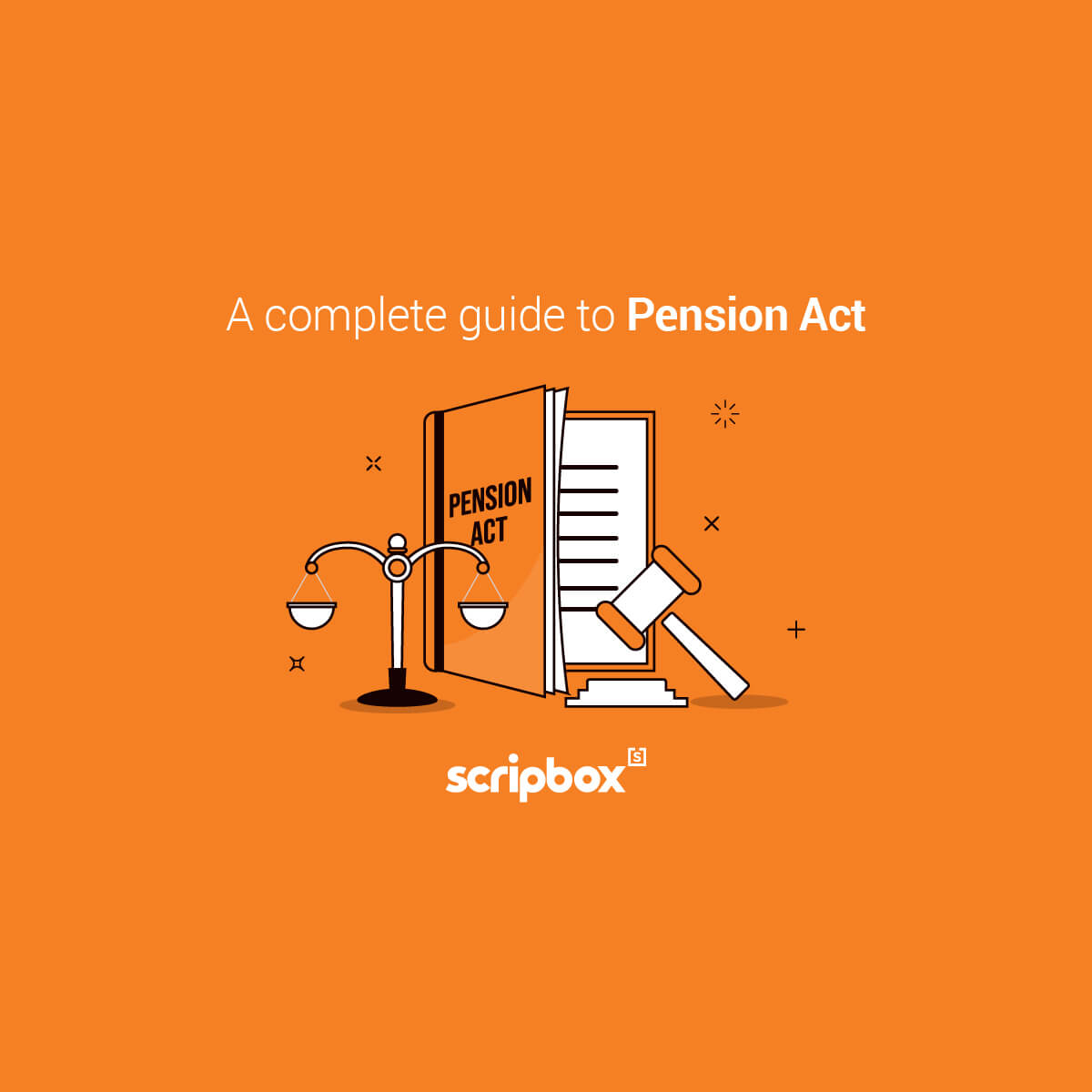What is the pension rule in India?
The pension rules in India are administered by the Department of Pension and Pensioner’s Welfare. The pension rules cover the following acts and provisions.
- Central Civil Services (Pension) Rules, 1972
- The Pensions Act, 1871
- Central Civil Services (Commutation of Pension) Rules, 1981 (Amended up to 06.06.2013)
- Central Civil Services (Extraordinary Pensions) Rules
- General Provident Fund (Central Services) Rules, 1960
- Contributory Provident Fund (India) Rules, 1962
- Payment of Arrears of Pension (Nomination) Rules, 1983
- Liberalized Pensionary awards in the case of death/disablement as a result of an attack by extremists, anti-social elements, etc.
Each of the above provisions is explained in detail by the Department of Pension and Pensioners’ Welfare on the pensioner’s portal. The pension rules of the Pension Act pertain to the eligibility of pension, the class of pensions, determining pension amount, the mode of payment, advances, and other miscellaneous things.
What happens to your pension if you die?
Some Pension schemes provide death benefits. In other words, when a person dies, the beneficiaries can claim or get access to retirement savings. Additionally, they are not liable to pay any inheritance tax.
Government Pension Payment
An employee must serve at least ten years to be eligible for receipt of a pension. The Central Government servant retiring must be in ten years of qualifying service to be able to get a pension as per the Pension Rules.
Currently, the minimum Pension is INR 9,000 per month. The maximum pension limit is 50% of the highest pay in the GOI. It is presently INR 1,25,000 per month.
The employee can opt to receive a maximum of up to 40% of the pension amount as a lump sum. A medical examination isn’t necessary for claims within one year of retirement. In case of death of the pensioner, their beneficiary or spouse can claim for the pension amount.
Private Pension Payment
In the case of private pension payments, the beneficiary can take the pension amount as a lump sum or invest in drawdown or use it to purchase an annuity. Furthermore, the beneficiaries have only two years to claim for the death pension. Post two years of the pensioner’s death, the beneficiary will have to pay a certain tax on the claim amount.
Who can claim a pension?
Employee Pension Scheme (EPS) is a social security scheme offered by the Employees’ Provident Fund Organization (EPFO). The scheme provides pension provisions for employees in the organized sector. The pension provisions are for their retirement after 58 years of age.
To be able to avail of the benefits under the EPS scheme, individuals have to fulfill the following criteria:
- Should be a member of the EPFO
- Should have completed a Service of at least 10 years
- Reached the age of 58 years
- Can withdraw EPS at a reduced rate from the age of 50 years
- Can also defer pension for two years (up to the age of 60 years). One can get a pension at an additional rate of 4% for each year.
Following are the pension benefits under the Employees’ Pension Scheme (EPS):
- Pension on retirement at the age of 58 years (Provided that he serviced the workplace for a minimum of 10 years)
- On leaving service before becoming eligible for Monthly Pension (Can be collected at the age of 58 but without the monthly benefits
- Pension on Total Disablement during the Service (When a member gets disabled regardless of serving years or age)
- Pension for the Family on the Death of the Member (If member completed ten years of serving and died before the age of 58)
How is your pension calculated?
The pension amount primarily depends on the pensionable salary and the pensionable Service. Its calculation is defined in the Pension Act. One can compute the monthly pension amount by using the following formula:
Monthly Pension Amount = Pensionable Salary * Pensionable Service / 70
Pensionable salary is the average monthly salary in the last twelve months before the individual exists the EPS. Also, if there are any non-contributory periods in the past 12 months, those days shall not be considered. Furthermore, the benefit will be given to the employee.
For example, let us assume Ms Kavya gets INR 15,000 per month as her salary. The maximum pensionable salary is INR 15,000 every month. Also, the employer contributes to 8.33% of the salary to the EPS account. Therefore, the amount deposited in the EPS account every month is
15,000*8.33/100 = INR 1,250
Pensionable Service is the actual service period of the individual. All the service periods under different employers are added to determine the pensionable service period. Furthermore, the pensionable service period is on a six-month basis. For example, if the service period is nine years, three months, the pensionable service period is nine years. While, if the service period is nine years, seven months, the pensionable service period is ten years.
How do I convert my pension into a family pension?
Family pension comes into the picture after the death of the pensioner. At the time of retirement, family pension is sanctioned and authorized to their spouse as well. Also, the same is indicated in the Pension Payment Order (PPO).
The PPO indicates the entitlement to the widow or widower in respect of family pension, in the event of the death of the pensioner. In the event of the death of the spouse, the dependent daughter or son is eligible for the amount. Also, the family pension shall end once the parents pass away, and none of the children is qualified for the pension account.
Frequently Asked Questions
What is the pension rule in India?
The pension rules in India are administered by the Department of Pension and Pensioner’s Welfare. The pension rules cover the following acts and provisions.
- Central Civil Services (Pension) Rules, 1972
- The Pensions Act, 1871
- Central Civil Services (Commutation of Pension) Rules, 1981 (Amended up to 06.06.2013)
- Central Civil Services (Extraordinary Pensions) Rules
- General Provident Fund (Central Services) Rules, 1960
- Contributory Provident Fund (India) Rules, 1962
- Payment of Arrears of Pension (Nomination) Rules, 1983
- Liberalized Pensionary awards in the case of death/disablement as a result of an attack by extremists, anti-social elements, etc.
What happens to your pension if you die?
Some Pension schemes provide death benefits. In other words, when a person dies, the beneficiaries can claim or get access to retirement savings. Additionally, they are not liable to pay any inheritance tax.
Who can claim a pension?
Employees’ Pension Scheme (EPS) is a social security scheme offered by the Employees’ Provident Fund Organization (EPFO).
To be able to avail of the benefits under the EPS scheme, individuals have to fulfill the following criteria:
- Should be a member of the EPFO
- Should have completed a Service of at least 10 years
- Reached the age of 58 years
- Can withdraw EPS at a reduced rate from the age of 50 years
- Can also defer pension for two years (up to the age of 60 years). One can get a pension at an additional rate of 4% for each year.
How is your pension calculated?
The pension amount primarily depends on the pensionable salary and the pensionable Service. Its calculation is defined in the Pension Act. One can compute the monthly pension amount by using the following formula:
Monthly Pension Amount = Pensionable Salary * Pensionable Service / 70
How do I convert my pension into a family pension?
Family pension comes into the picture after the death of the pensioner. At the time of retirement, family pension is sanctioned and authorized to their spouse as well. Also, the same is indicated in the Pension Payment Order (PPO).
Related Articles
- What is the pension rule in India?
- Confused if your portfolio is performing right enough to meet your goals?
- How long have you been investing in mutual funds?
- What is your current portfolio size?
- What is your approximate annual household income?
- Your profile does not qualify for a call with a Financial Expert.
- What happens to your pension if you die?
- Who can claim a pension?
- How is your pension calculated?
- How do I convert my pension into a family pension?
- Frequently Asked Questions





























Show comments